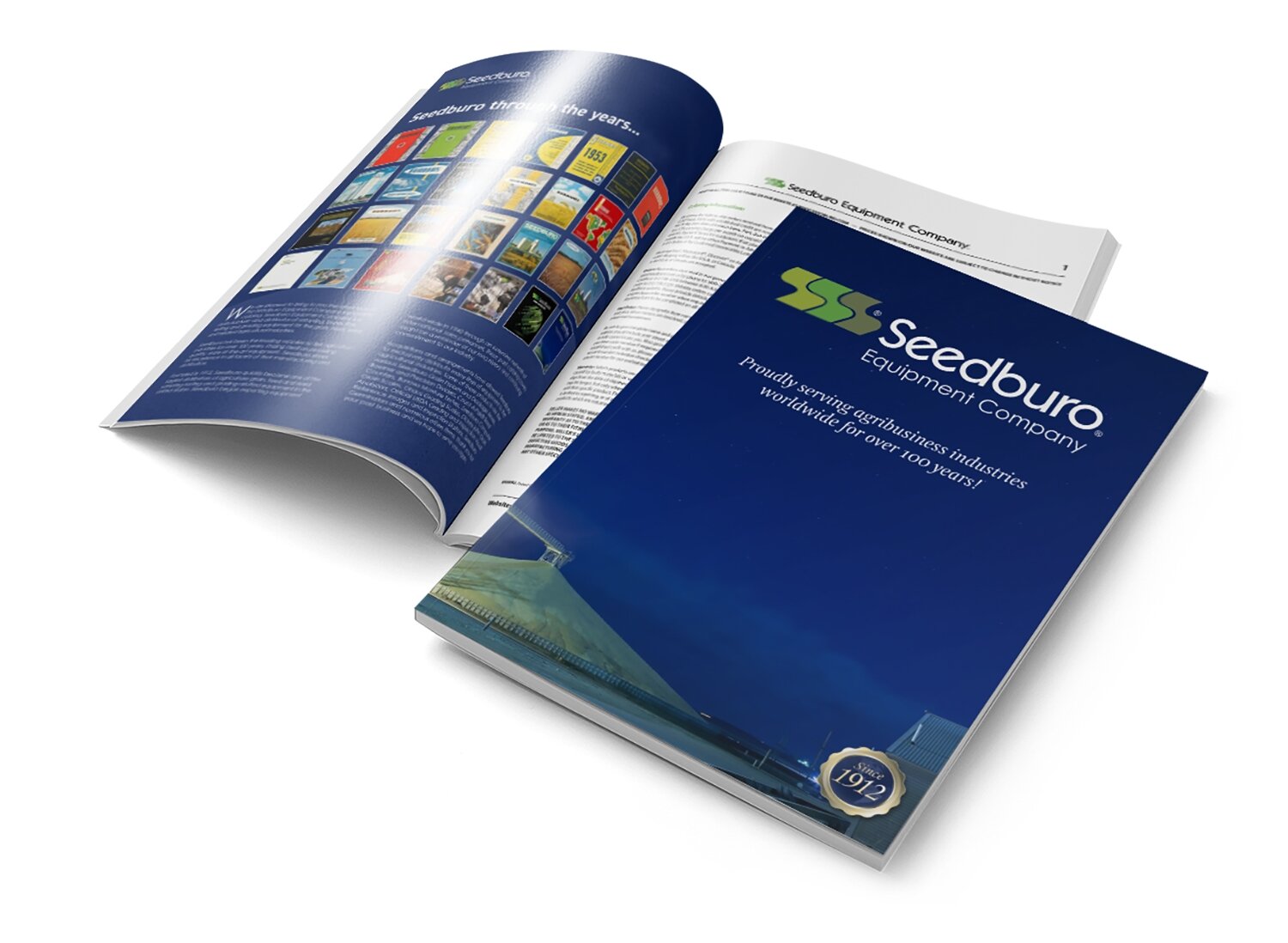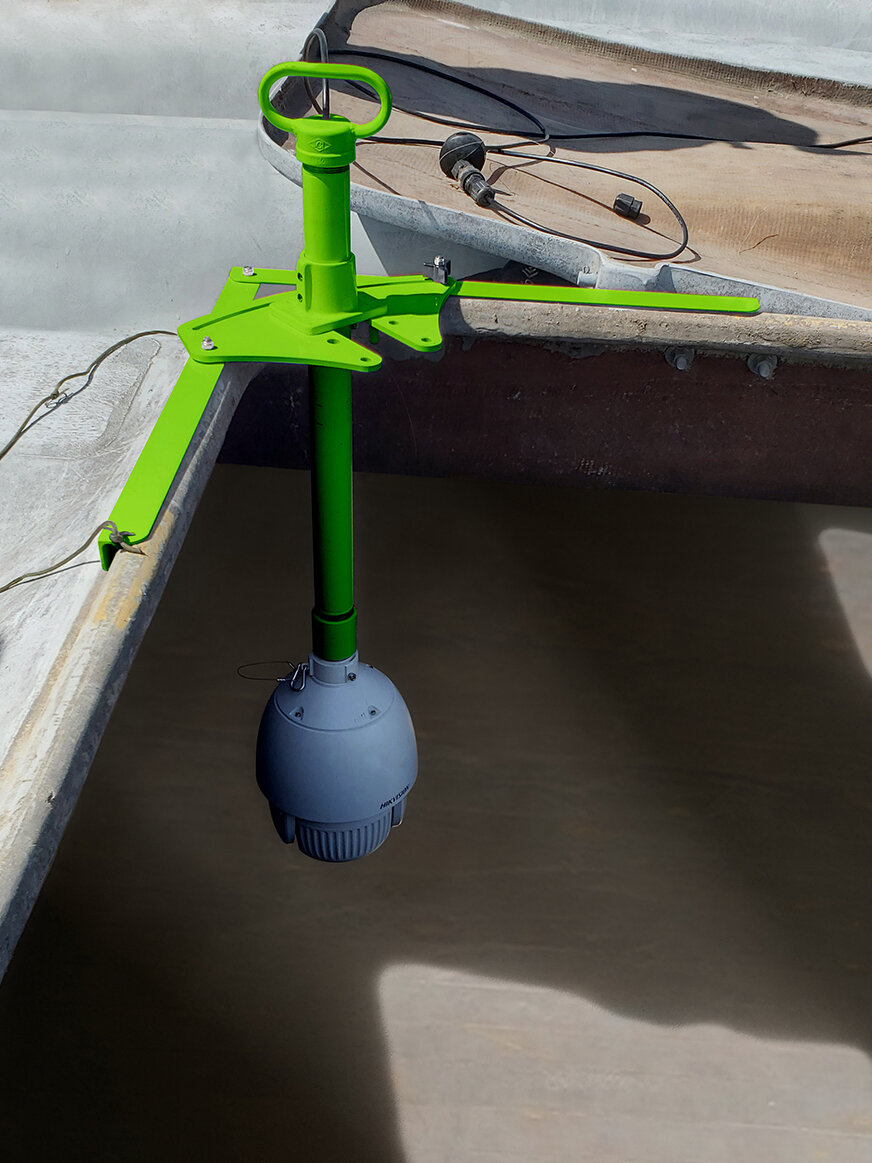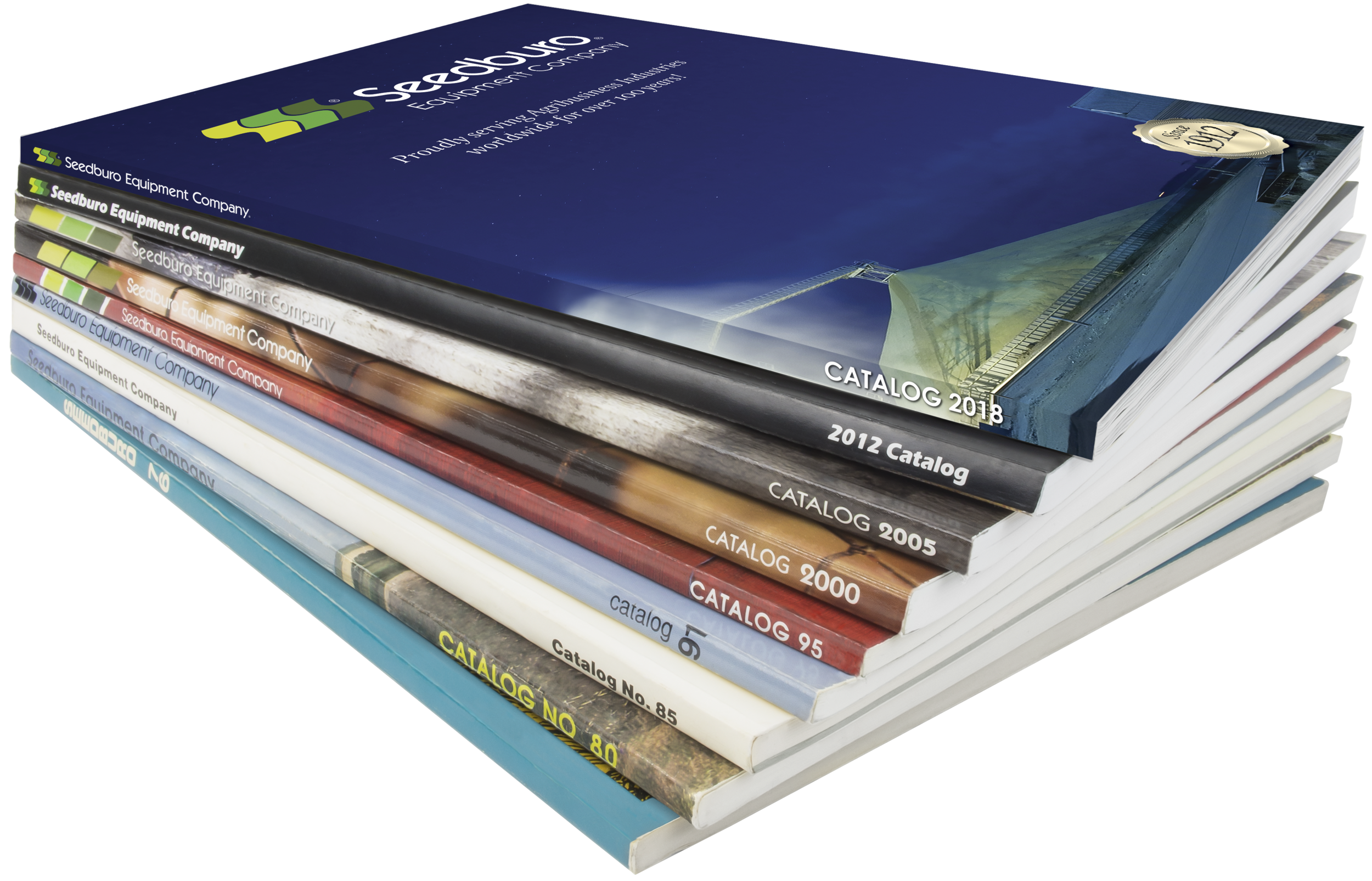Seedburo Equipment Company
/Seedburo Equipment Company has a long and proud history of collaboration with customers, suppliers, and the grain industry to provide specialty products for testing within the grain, feed, and seed industries. It is this commitment to collaboration that makes the company the go-to source of specialty products utilized in these industries worldwide.
Seedburo has been in business for 109 years and has been directly involved in the design and manufacture of many pieces of equipment used in the inspection system. This involvement and associated knowledge are resources that may not be evident to those new to the grain handling and inspection industries. Tom Runyon, company owner, points out that 109 years is a long time for any manufacturing and distribution company and this longevity places Seedburo in a unique position to assist the grain inspection industry well into the future.
The company started as a publishing company that printed a seed catalogue and was called the Seed Trade Reporting Bureau. A century ago, almost everyone had a home garden, and they were looking for seeds to meet their needs. The company then began printing information for State agricultural agents across the country. This relationship offered the opportunity to work with individuals that were developing the U.S. Grain Standards. Many of the persons developing the early grain testing equipment were either relatives or associates of the company’s owner Leroy Smith. Additionally, the company was in the same building as the Chicago Board of Trade which facilitated collaboration of grain inspection equipment development.
Persons developing grain inspection equipment realized that Seedburo had a relationship with small seed cleaner businesses through the seed publications they were publishing and began partnering with Seedburo to promote their products in these publications. This relationship caused the company to evolve from a publishing company to an equipment distribution company. In 1947 and the name was shortened to Seedburo. You may still find some older equipment with the company name Seed Trade Reporting Bureau. Publishing their grain inspection equipment catalog caused Seedburo to become the magnet for both people reaching out to sell their equipment and those seeking to find inspection equipment. This positioned Seedburo in the unique position between both parties and the government who approved equipment to bring new equipment to market and distribute these products.
Initially, Seedburo only distributed products manufactured by others, and they found companies that would manufacture products that developers brought to them. For example, Seedburo has been associated with the Boerner divider since 1915. Initially the divider was distributed by Seedburo, but later became a Seedburo product. Seedburo now has a contractor to build the dividers. All Seedburo probes and sieves are exclusively manufactured for Seedburo by small contractors.
Seedburo is proud to work with dozens of small business manufacturers to produce their products. Many of these relationships span decades and many are small family businesses in the United States. Tom says it is important to recognize that these small contractors produce “custom made specialty grain grading equipment”. They are unique custom-made industrial products. For example, there is no other test weight quart cup bucket available as a consumer good. Customers do not always recognize the unique nature of these products and the limited quantities that are sold each year.
Recently, Seedburo has established some inhouse manufacturing and repair capabilities. They manufacture the sieve shaker, grading scales and pellet durability testers at their sister company AgPoint Precision.
Seedburo also owned the Gamet Company beginning in the early 1980’s when there was a death of the primary owner and the company needed to liquidate. After about 20 years the company was sold back to a small group of upper-level employees. Although Seedburo has had significant manufacturing capabilities they remain primary a distribution company in the niche markets.
After college Tom spent one year teaching vocational agriculture, before his wife encouraged him to move to Chicago where Tom entered the grain inspection equipment business as an employee of the Burrows Equipment Company in 1979. Burrows was a Seedburo competitor that also produced an equipment catalog. It was that same year that Seedburo purchased Burrows and Tom began working for Seedburo. Tom is the first nonfamily member to own the company after three generations of Smith family ownership. With 41 years of experience, Tom has a wealth of knowledge and contacts within this specialized enterprise.
Tom is proud of the work that Seedburo has done in the past with FGIS when someone would have an idea for new or improved equipment design to enhance the inspection process. Seedburo was in the unique position to bring the manufacturing component to the solution through its network of suppliers. This network of collaboration has produced significant improvements. While the amount of collaboration has lessened over the recent years, Tom believes Seedburo is still uniquely positioned to assist.
Seedburo is headquartered in Des Plaines, Illinois and their AgPoint facility is only 40 miles away in Plainfield, Illinois. 14 employees work at headquarters and five work at AgPoint. Tom says they are a “small little company doing big business”. They distribute to all 50 States each year, and they typically distribute to around 85 foreign countries each year. Their largest markets outside of the U.S. are Canada and Mexico. Iraq continues to be a significant customer as the U.S. continues to rebuild their agricultural infrastructure. Other countries of prominent purchasing include China, Colombia and Pakistan.
Although Seedburo’s printed catalog has been a staple in their marketing for many years and continues to be so, several years ago they began developing their website as an additional marketing tool and to allow customers to make their purchases online. This was especially useful this year when so much of their customers needed to purchase online. In fact, numerous new companies have come to Seedburo to have them distribute their products because of how impressed they were with Seedburo’s website.
Tom says that the diversity of the products they sell, and the diversity of their customers makes the job of running Seedburo interesting for him. At one moment he may be talking to an inspection agency on the East Coast, followed by one in the Midwest, and then one on the West Coast. Each one with similar but different needs. Then he may be working with a processor trying to separate different specialty seeds. He is also proud that all these people come to Seedburo to solve these unique problems. It is not only providing a product to resolve the problem but it’s the ability also to share knowledge that is most rewarding even though it might not create an order.
Working with the U.S. Grains Council has been especially rewarding as they work to establish inspection laboratories overseas. From providing initial lists of necessary equipment, shipping the equipment to the destination, to seeing pictures of the completed laboratory full of Seedburo equipment shared by U.S. Grains Council in their publications is especially gratifying.
While Seedburo has a proud history, they are here for the future as well. With a diverse product line and a constant eye to add new products to meet emerging needs the people at Seedburo are well positioned to continue to do their part to move the inspection industry forward.






